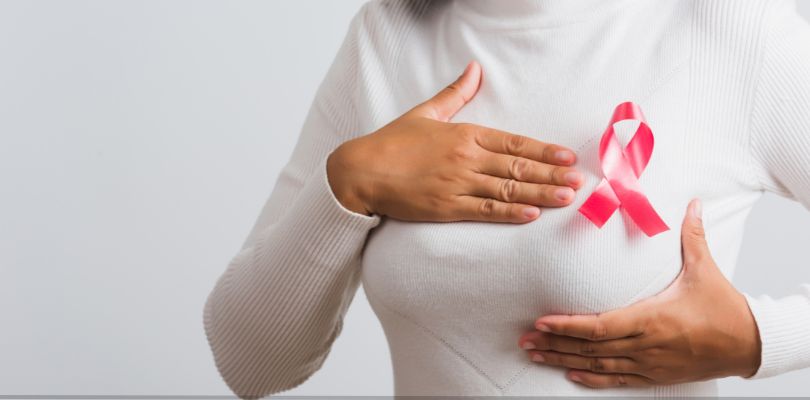Top Drinks to Avoid, Signs to Know and Treatment Options
Maintaining a healthy lifestyle is crucial in the prevention and management of breast cancer. While diet plays a significant role, it's essential to consider the impact of beverages as well. To help, consider Talzenna (talazoparib), a medication used in the treatment of certain types of breast cancer. It works by blocking an enzyme called poly ADP-ribose polymerase (PARP).
Worst Drinks for Breast Cancer
Alcoholic Beverages
Alcohol consumption is one of the most significant modifiable risk factors for breast cancer. Studies have shown that alcohol can increase estrogen levels and other hormones associated with hormone-receptor-positive breast cancer. It also damages DNA in cells, further contributing to cancer risk.
Limit alcohol intake to reduce the risk. Women who drink should aim for no more than one alcoholic drink per day.
The same properties in Botox that help firm skin can also help strengthen the bladder. Read more about Botox treatment for overactive bladder here.
Sugary Drinks
Beverages high in sugar, such as sodas and sweetened juices, can contribute to obesity, a known risk factor for breast cancer. High sugar intake can also lead to higher insulin levels, which may promote the growth of breast cancer cells.
Opt for water, unsweetened teas or natural fruit-infused water instead of sugary drinks.
High-Caffeine Drinks
While moderate caffeine intake is generally considered safe, excessive consumption of high-caffeine drinks like energy drinks and certain coffee beverages can lead to dehydration and affect hormone levels, potentially impacting breast cancer risk.
Limit caffeine intake and choose healthier alternatives like herbal teas.
Artificially Sweetened Beverages
Some studies suggest that artificial sweeteners may have adverse health effects, including potential links to cancer. Although the evidence is not conclusive, it's wise to be cautious with these products.
Reduce or eliminate artificially sweetened drinks and choose natural sweeteners in moderation.
Full-Fat Dairy Drinks
Some research indicates that high consumption of full-fat dairy products may be linked to an increased risk of breast cancer due to the presence of estrogen and progesterone in dairy fat.
Choose low-fat or non-dairy alternatives when possible.
Signs of Breast Cancer
Early detection of breast cancer is crucial for effective treatment. Be aware of the following signs:
- Lump in the breast or underarm: The most common sign is a new lump or mass, which is often hard and painless.
- Change in breast shape or size: Unexplained changes in size or shape of the breast can be a warning sign.
- Skin changes: Dimpling, puckering, redness or thickening of the breast skin should be examined.
- Nipple changes: Look for nipple discharge (other than breast milk), inversion or pain in the nipple area.
- Persistent pain: While not typically associated with breast cancer, persistent pain in the breast or armpit should be checked.
Breast Cancer Treatments
Treatment for breast cancer varies depending on the stage and type of cancer, as well as the patient’s overall health. Common treatments include:
- Lumpectomy: Removal of the tumor and some surrounding tissue.
- Mastectomy: Removal of one or both breasts, partially or completely.
- Radiation therapy: Uses high-energy waves to target and kill cancer cells, often used after surgery to eliminate remaining cells.
- Chemotherapy: Involves the use of drugs to destroy cancer cells, which can be administered orally or intravenously.
- Hormone therapy: Effective for hormone-receptor-positive breast cancers, it blocks the body’s natural hormones that fuel cancer growth.
- Targeted therapy: Uses drugs or other substances to precisely identify and attack cancer cells without harming normal cells.
- Immunotherapy: Helps the immune system fight cancer, typically used for advanced breast cancer.
- Talzenna: Talzenna (talazoparib) is a prescription medication used in the treatment of certain types of breast cancer. It belongs to a class of drugs known as PARP inhibitors, which work by interfering with the DNA repair mechanisms in cancer cells, thereby preventing them from growing and dividing.
Breast Cancer Awareness
Being mindful of the beverages you consume is a crucial aspect of reducing breast cancer risk and supporting overall health. Limiting intake of alcohol, sugary drinks, high-caffeine beverages, artificially sweetened drinks and full-fat dairy can be beneficial. Early detection through awareness of breast cancer signs and pursuing appropriate treatments if diagnosed are essential steps in managing breast cancer. By adopting a healthy lifestyle and staying informed, you can make proactive choices to support your well-being.







